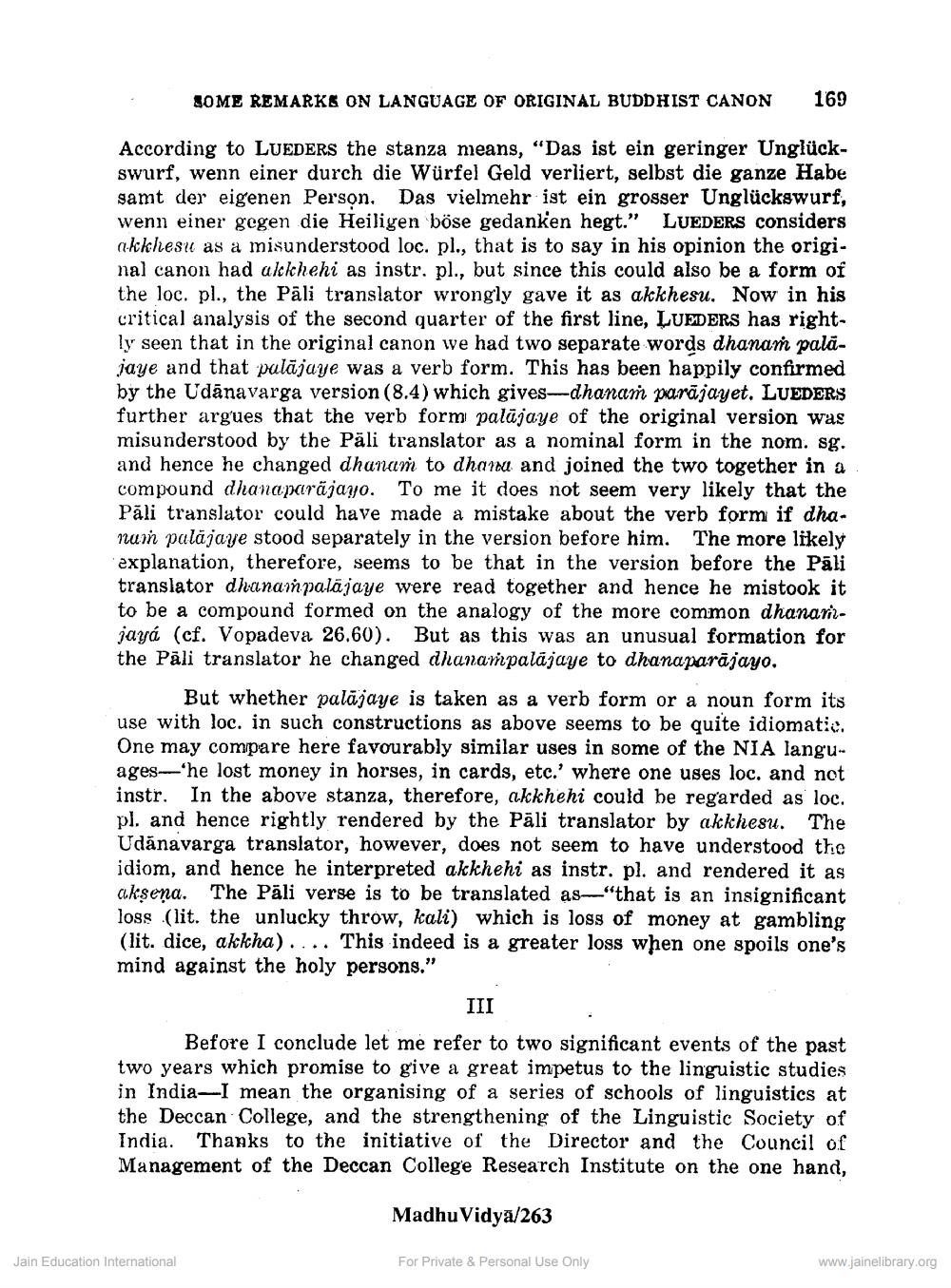________________
SOME REMARKS ON LANGUAGE OF ORIGINAL BUDDHIST CANON
169
According to LUEDERS the stanza means, "Das ist ein geringer Unglückswurf, wenn einer durch die Würfel Geld verliert, selbst die ganze Habe samt der eigenen Person. Das vielmehr ist ein grosser Unglückswurf, wenn einer gegen die Heiligen böse gedanken hegt." LUEDERS considers akkhesu as a misunderstood loc. pl., that is to say in his opinion the original canon had akkhehi as instr. pl., but since this could also be a form of the loc. pl., the Pāli translator wrongly gave it as akkhesu. Now in his critical analysis of the second quarter of the first line, LUEDERS has rightly seen that in the original canon we had two separate words dhanam palăjaye and that palājaye was a verb form. This has been happily confirmed by the Udānavarga version (8.4) which gives---dhanam parājayet. LUEDERS further argues that the verb form palājaye of the original version was misunderstood by the Pāli translator as a nominal form in the nom. sg. and hence he changed dhanam to dhanu and joined the two together in a compound dhanaparājayo. To me it does not seem very likely that the Pāli translator could have made a mistake about the verb form if dharum palājaye stood separately in the version before him. The more likely explanation, therefore, seems to be that in the version before the Pāli translator dhanampalājaye were read together and hence he mistook it to be a compound formed on the analogy of the more common dhanarjayá (cf. Vopadeva 26.60). But as this was an unusual formation for the Pāli translator he changed dhanampalājaye to dhanaparājayo.
But whether palājaye is taken as a verb form or a noun form its use with loc. in such constructions as above seems to be quite idiomatic. One may compare here favourably similar uses in some of the NIA languages-'he lost money in horses, in cards, etc.' where one uses loc. and not instr. In the above stanza, therefore, akkhehi could be regarded as loc. pl. and hence rightly rendered by the Pāli translator by akkhesu. The Udănavarga translator, however, does not seem to have understood the idiom, and hence he interpreted akkhehi as instr. pl. and rendered it as aksena. The Päli verse is to be translated as "that is an insignificant loss (lit. the unlucky throw, kali) which is loss of money at gambling
(lit. dice, akkha).... This indeed is a greater loss when one spoils one's mind against the holy persons."
III
Before I conclude let me refer to two significant events of the past two years which promise to give a great impetus to the linguistic studies in India-I mean the organising of a series of schools of linguistics at the Deccan College, and the strengthening of the Linguistic Society of India. Thanks to the initiative of the Director and the Council of Management of the Deccan College Research Institute on the one hand,
Madhu Vidya/263
Jain Education International
For Private & Personal Use Only
www.jainelibrary.org




